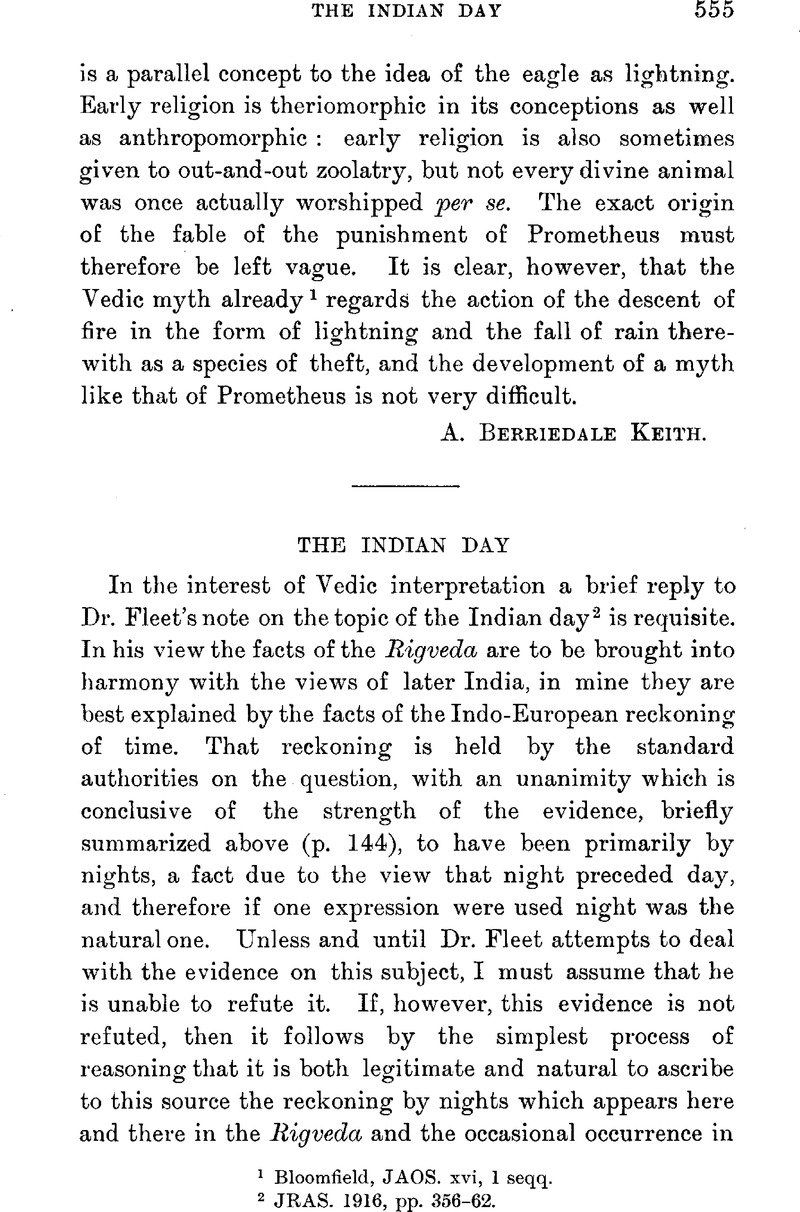No CrossRef data available.
Article contents
Abstract

- Type
- Miscellaneous Communications
- Information
- Copyright
- Copyright © The Royal Asiatic Society 1916
References
page 555 note 2 JRAS. 1916, pp. 356–62.Google Scholar
page 556 note 1 So in i, 113. 1 ff.
page 556 note 2 xi, 1. 6. 7, 8.
page 557 note 1 SBE. xliv, 13Google Scholar (trans, of §8, “And by the downward breathing”). Not “Then” as in Dr. Fleet's paraphrase.
page 558 note 1 Kaṭha Upaniṣad, i, 11.Google Scholar
page 558 note 2 Delbrück, , Altind. Synt. pp. 440, 441Google Scholar. The alleged cases of the genitive adduced in BR. are now universally abandoned.
page 559 note 1 See e.g. Thibaut, , Astronomie, p. 12.Google Scholar
page 559 note 2 See Macdonell, , Vedic Grammar, § 268Google Scholar; Wackernagel, , Altind. Gramm, ii, 1. 165 seqqGoogle Scholar. The case falls under either of the Vārttikas, 4 and 5, to Pāṇini, , ii, 2. 34Google Scholar, prescribing priority for the more important word and that with fewer moræ. On an analogous principle the term bṛhadrathantara is always used, though the actual order is the opposite.
page 560 note 1 e.g. TS. ii, 1. 7, 2.
page 560 note 2 v, 28–30.
page 560 note 3 iii, 2. 1, 1 seqq.
page 561 note 1 See his article in JAOS. xxiv, 14 seqqGoogle Scholar. It may be noted that the passage of the Maitrāyaṇī Saṁhitā there referred to is i, 5 (not 15). 12. It proves in an interesting way how regular then was the view that a new day began with night: according to it day first existed, and night was created for the sake of Yamī: tátaḥ śvástanam abhavat, “then there came into being to-morrow”; in the epic per contra, śvas normally denotes a day beginning with sunrise.


